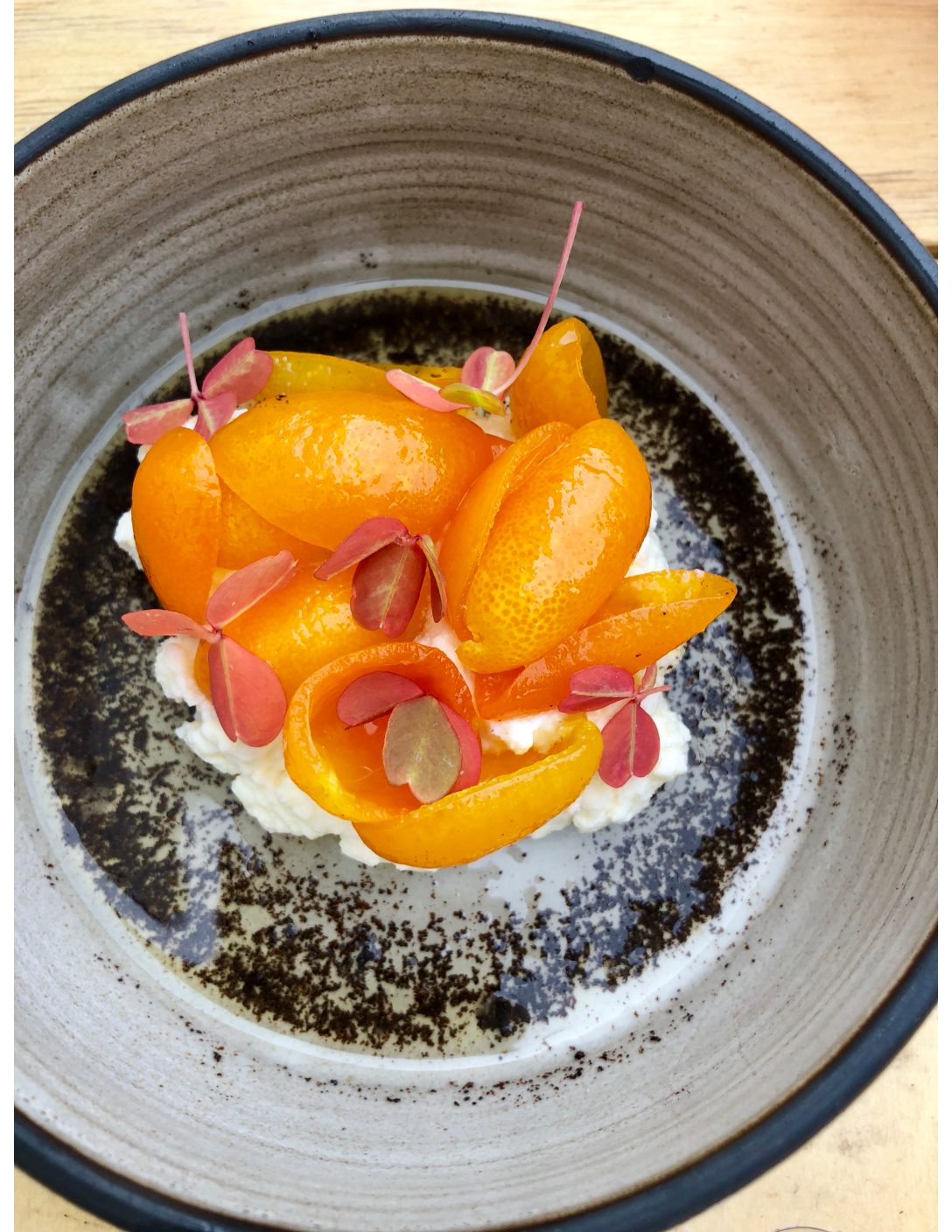The tables are now empty at Del Toro.
Del Toro opened in December 2005, it was a modest affair, devoid of the auspicious pomp surrounding most restaurant launches.
There was some buzz because local impresario Terry Alexander was reinventing his popular Wicker Park spot MOD. But when I first met chef Andrew Zimmerman, he spoke of the inspiration of a simple grilled monkfish that he had on a recent trip to Spain. He hoped to bring a similar quiet grace to Del Toro.
Early critics seemed conflicted, but by the time I visited last July I’d felt Zimmerman transcended the party culture and assembly-line inauthenticity of other local tapas bars.
At the time I’d written:
“An iconic dish like patatas bravas, which at most places is usually chopped deep-fried potatoes tossed with tomato sauce, and slathered with a bit of mayo, gets special treatment. Zimmerman hand-carves potato cylinders, deep-fries them twice and then injects the cylinders with a spicy tomato coulis and then pipes in fresh aioli. His bravas look like deep fried Smurf huts with mushroom-shaped gables of mayo.â€
Zimmerman and his sous chef Robert Levitt were using pristine pork from Indiana’s Gunthorp farms and curing their own meats. Most importantly, you could drop $30 bucks and have a fabulous filling meal.
Less than two years after opening, Del Toro has closed. Restaurants close all the time, but usually it’s understandable, with bad food and clumsy service coming to roost. Del Toro was serving great food, and their food runners, such as Kurt Estopinal, read 700-page scientific tomes on cooking for fun.
The closing wasn’t about fickle customers. Early weekday traffic could be slow, but Zimmerman would budget for that and then blow through 200 covers most Saturday nights.
I stopped in last Friday for one more meal and Del Toro was packed. This wasn’t a Berghoffian nostalgic sendoff. The customers I spoke with didn’t even know the restaurant was closing. Zimmerman, unfettered by economic pressure and faced with having to unload his larder, featured six specials including a Serrano style ham he and Levitt started curing in 2006. Spanish-style French toast was paired with delicate bacon ice cream lending a touch of sweet smoke and salt.
What leaves some bitterness is that the closing has nothing to do with food, that it’s a result of a rogue partner. The details are off the record, but owner Terry Alexander says, “There was a problem with a past partner. For anyone to really understand it, I’d have to sit down with them for three hours.”
I’d heard they’d bought the partner out and ask Zimmerman about it. He says, “I don’t know that we bought him out, as so much as we asked him to leave. That caused us a lot of difficulty and it took us a while to realize how much.”
Still, the resilience of Zimmerman and Alexander was palpable. Alexander’s planning a new spot, though he was tight-lipped on details. When I press him on what he feels the neighborhood needs, he said, “I would like to see more restaurants. Man, there are a lot of bars in this neighborhood.”
Zimmerman is nostalgic for the restaurant he launched, but he realizes he hadn’t had a day off in a month and jokes, “I’m gonna sleep for about two or three days.”
Not everyone has jobs lined up, but Estopinal has secured a job at Opera and a hostess I spoke with was moving on to Alexander’s Mia Francesca group.
Still, the fact that local designer Suhail’s masterpiece interior, which includes tens of thousands of hand-inlaid tile shards, would be gone seemed tragic.
Suhail says, “By the time I’ve finished a project, I’ve gotten everything out of it. I’m really in it for the months of intense creativity. I think of it as an art installation. It has a beginning, a middle and an end. Unfortunately the change came too abruptly, but I can’t control it.”
Levitt, now the executive chef at Fiddlehead Café, shares Zimmerman’s pride and nostalgia saying, “We went in there last night, to have our final meal, to say our peace.” He adds, “The hardest part is that being there from the beginning I was one of the guys who decided what went where, and that’s still my handwriting on that container.”
I used to manage e-commerce, and while I was at Del Toro Friday night, four of my former co-workers came in. When last I’d saw them, I’d become a stereotype. I hated my job, had health problems and couldn’t sleep. Even after quitting that job, entering the unknown without another job was equally stressful. We noticed each other and gathered to talk about old times. I shared new stories, including the fact that I recently secured my first article assignment for a national magazine, that my health was great and that my wife and I are expecting our first child in a few days.
Zimmerman will land on his feet and bring his talents to bear on a new restaurant, and the rest of the Del Toro diaspora will be friendly faces at other restaurants. No doubt Suhail and Alexander will bring their unbridled creativity to a greater project.
The next time I sit in the ex-Del Toro space, I’ll remember that moment, of meeting once again with old co-workers, and of how I finally realized that my own life, as a result of painful change, has never been better.
This article first appeared in a shorter form in Newcity Chicago

